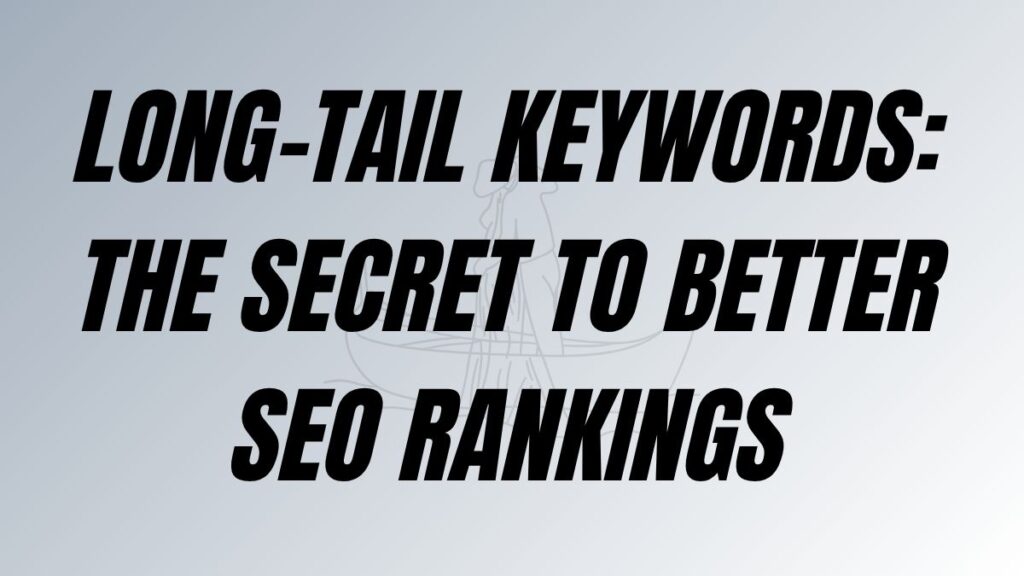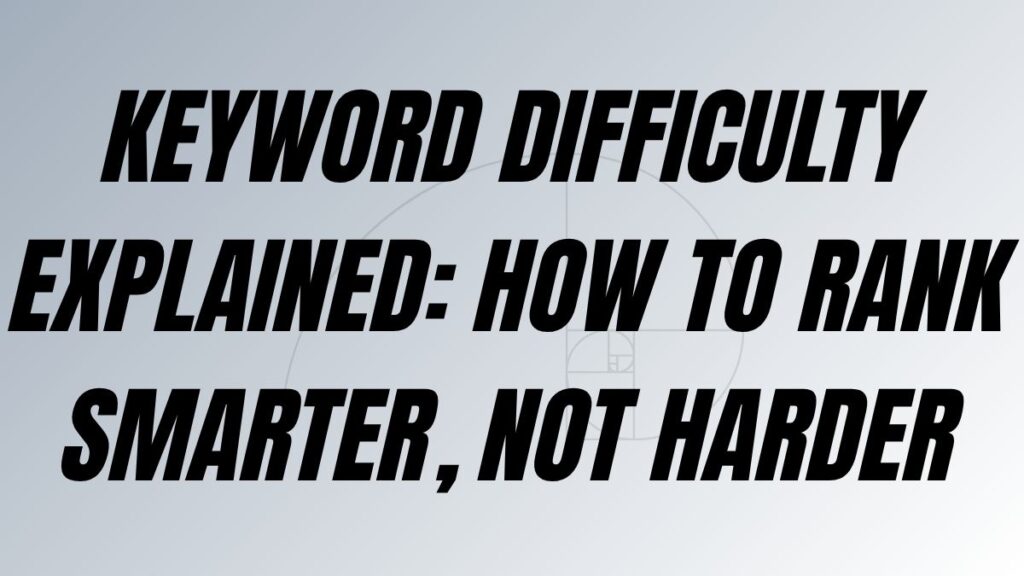Ranking a new website often feels like screaming into a void. The Keyword Golden Ratio (KGR) is the megaphone that cuts through the noise. According to Authority Hacker’s 2025 benchmarks, new sites targeting KGR-compliant keywords rank in the top 10 within 48 hours for 60% of queries, whereas standard keywords typically require 3-6 months. It is the only data-backed method that prioritizes “ranking speed” over search volume, making it the perfect entry point for B2B SaaS startups fighting established giants.
Anticipating Google rankings often sounds like playing the lottery. It’s been my hard belief in SEO for years. What if there was a method to predict which keywords might give you quick wins? Not a guarantee, mind you – nothing in SEO offers certainties – but a calculated advantage that puts probability on your side. The Keyword Golden Ratio (KGR) offers exactly that possibility. This under-utilised formula helps identify low-competition keywords that could rank within days or weeks rather than months. It’s particularly valuable for B2B companies with new websites or those struggling to compete against established domain authorities.
“Finding the right keywords isn’t about volume – it’s about finding the gaps your competitors haven’t noticed yet,” as SEO strategist Doug Cunnington, who popularised this approach, might say. Let’s examine what makes this ratio tick, how it might benefit your content strategy, and when you should consider other approaches instead.
Key Takeaways
- The “Under 250” Rule: KGR only works if the search volume is low (under 250). If you try this with a volume of 1,000, the “Allintitle” logic breaks down.
- The “Allintitle” Operator: This is your secret weapon. It tells you how many people have intentionally optimized for that phrase. If the number is low, the door is open.
- Speed over Volume: Do not chase traffic volume. Chase ranking speed. Accumulate 100 small wins to build the authority needed for the big wins later.
What Is the Keyword Golden Ratio (KGR)?
It compares the number of Google search results with a keyword in their title (using the allintitle operator) to the monthly search volume for that keyword. This technique was popularised by Doug Cunnington and is particularly useful for new websites or those operating in niche markets like B2B software.
As an example, image you are looking for an SEO expert in Harrogate, just type ‘allintitle:SEO expert Harrogate’ and you’ll find you have to know about SEO experts in this town of North Yorkshire.
How Do You Calculate the Keyword Golden Ratio?
The formula is: Allintitle Results / Monthly Search Volume = KGR. To qualify, the search volume must be under 250, and the final ratio must be less than 0.25.
The Keyword Golden Ratio is a data-driven method for identifying low-competition keywords with high ranking potential. It helps affiliate marketers and SaaS companies find “gaps” in Google’s index.
- Identify Potential Keywords:
- Use tools like Ahrefs, SEMrush, or Google Keyword Planner to find long-tail keywords relevant to your audience.
- Focus on keywords with a monthly search volume of 250 or less.
- Find “Allintitle” Results:
- Go to Google and type: allintitle:your keyword.
- Note the number of results displayed at the top of the SERP.
- Calculate the Ratio:
- Divide the number of “allintitle” results by the keyword’s monthly search volume.
- Example: If “allintitle” results = 10 and monthly search volume = 100, then KGR =10/100 = 0.1
- Evaluate Feasibility:
- Prioritize keywords with a KGR below 0.25 for quick wins.
The Golden Rules
- KGR < 0.25: Excellent opportunity; likely to rank quickly.
- KGR 0.25–1: Moderate competition; ranking is possible but slower.
- KGR > 1: High competition; difficult to rank.
By targeting keywords with a KGR below 0.25, you can focus on less competitive queries that still attract relevant traffic.
Example:
- Keyword: “Best CRM for vegan bakeries”
- Search Volume: 100
- Allintitle Results: 10
- Calculation: 10 / 100 = 0.10 (This is a winner).
Actionable Tips for Implementing Keyword Golden Ratio in SaaS Software Marketing
1. Identify Niche Keywords
KWFinder (by Mangools) is widely considered the best tool for KGR because of its accurate low-volume data. Ahrefs and SEMrush are powerful but often ignore the “zero volume” keywords that KGR thrives on. Use tools like KWFinder or Ahrefs to find long-tail keywords specific to your software niche.
Focus on terms with monthly search volumes under 250.
In B2B software, where businesses constantly seek efficient and specialized tools, understanding buyer search behavior is paramount for effective search engine optimization (SEO). A key strategy involves targeting long-tail keywords. These are not generic, high-volume terms but rather highly specific phrases that accurately reflect the nuanced needs of potential customers. For instance, instead of a broad term like “CRM software,” a B2B buyer might search for “best CRM for SaaS startups” or “project management tool for agile marketing teams.”
The advantages of focusing on long-tail keywords are multifaceted:
- Lower Competition: Due to their specificity, fewer businesses typically compete for these terms, making it easier for your content to rank higher in search results.
- Higher Purchase Intent: Users who employ long-tail keywords are often further along in their buying journey. They have a clearer idea of what they need and are actively seeking a solution, indicating a stronger likelihood of conversion.
- Increased Relevance: By aligning your content with these precise searches, you can deliver highly relevant information that directly addresses the user’s pain points and requirements, building trust and authority.
To effectively identify and leverage these valuable long-tail keywords, a systematic approach is crucial:
- Keyword Research Tools: Utilize industry-leading tools such as KWFinder, Ahrefs, or SEMrush. These platforms offer comprehensive data on keyword search volume, competition, and related terms, helping you uncover hidden opportunities.
- Specificity to Your Niche: The most effective long-tail keywords are deeply embedded in the specifics of your software niche. Consider the unique challenges your software solves, the specific industries it serves, and the unique features it offers. Brainstorm terms that prospective customers would use when describing these particular aspects.
- Search Volume Analysis: While the goal is to target less competitive terms, it’s also important to ensure there’s enough search interest to warrant the effort. A good starting point is to focus on terms with monthly search volumes under 250. This sweet spot often indicates enough demand to be valuable, without being overly saturated. However, this number can be flexible depending on your industry and the overall market size. For highly specialized or niche software, even lower search volumes can be extremely valuable if they lead to highly qualified leads.
- Competitor Analysis: Examine what long-tail keywords your competitors are ranking for. This can reveal opportunities you might have missed and provide insights into successful content strategies within your industry.
- Customer Interviews and Feedback: Directly engaging with your existing customers can provide invaluable insights into the language they use when describing their problems and searching for solutions. Their exact phrasing can often be a goldmine for long-tail keyword ideas.
- Forum and Community Monitoring: Online forums, Q&A sites, and social media groups where your target audience congregates can be rich sources of long-tail keywords. Pay attention to the questions people are asking and the terminology they use.
By meticulously researching and strategically integrating long-tail keywords into your content strategy, SaaS companies can significantly improve their organic search rankings, attract highly qualified leads, and ultimately drive sustainable growth.
2. Calculate the KGR
Use the formula: KGR = (allintitle results) / (monthly search volume)
Aim for a KGR of 0.25 or lower for the best ranking potential
3. Create High-Value Content
Once you’ve successfully identified a KGR-friendly keyword, the next crucial step is to meticulously craft content that provides comprehensive and in-depth answers or solutions to the specific needs and questions associated with that keyword. This content should aim to be the definitive resource on the topic, offering unparalleled value to your target audience.
Here’s how to approach this critical phase:
- Develop Diverse Content Formats: Don’t limit yourself to a single content type. Strategically create a variety of formats that cater to different learning styles and preferences. This could include:
- In-depth Blog Posts: These should go beyond surface-level information, diving deep into the nuances of the topic. Structure them with clear headings, subheadings, and bullet points for readability.
- Compelling Case Studies: Showcase real-world applications and success stories. Highlight how your SaaS solution has helped others address the challenges related to your chosen keyword. Include data, testimonials, and clear explanations of the problem, solution, and results.
- Authoritative Whitepapers or E-books: For more complex topics, these longer-form pieces can establish your company as a thought leader. They provide an opportunity to explore the subject from multiple angles, offering detailed analysis, research, and expert insights.
- Help Guides and Tutorials: If the keyword suggests a need for practical instruction, create step-by-step guides that walk users through a process or demonstrate how to use your product to solve a specific problem.
- Infographics and Visual Content: While not standalone, these can complement your written content, making complex information more digestible and shareable.
- Integrate Actionable Insights, Comparisons, and Relevant Examples: To truly resonate with your audience and make your content valuable, ensure it includes:
- Actionable Insights: Don’t just present information; tell your readers what they can do with it. Provide practical tips, strategies, and next steps that they can implement immediately to achieve their goals.
- Meaningful Comparisons: If applicable, compare different approaches, tools, or solutions related to your keyword. This helps your audience make informed decisions and highlights the unique advantages of your offering. Be objective and provide a balanced perspective.
- Real-world Examples and Scenarios: Abstract concepts are harder to grasp. Illustrate your points with concrete examples and realistic scenarios that your audience can relate to. This brings your content to life and demonstrates its practical applicability.
- Data and Statistics: Support your claims with credible data and statistics. This adds authority and trustworthiness to your content, making it more persuasive and impactful.
- Problem/Solution Framework: Clearly identify the pain points or challenges your audience faces related to the keyword and then present your SaaS solution as the effective answer.
Future-Oriented Perspectives: Where appropriate, discuss emerging trends, future implications, and how your audience can prepare for what’s next in relation to the keyword.
4. Optimize Titles and Meta Descriptions
To significantly improve a page’s relevance and click-through rates (CTR) in search engine results, it’s crucial to strategically incorporate your target keyword within key on-page elements. This practice signals to search engines what your content is about and entices users to click on your listing.
Specifically, ensure your target keyword appears naturally and contextually in the following areas:
- The title tag: This is arguably the most important on-page SEO element. The title tag is what users see as the clickable headline in search engine results pages (SERPs) and in their browser tab. Including your target keyword here, ideally towards the beginning, immediately tells both search engines and users the primary topic of your page. A compelling and keyword-rich title tag is vital for attracting clicks.
- Meta description: While not a direct ranking factor, the meta description acts as your page’s “ad copy” in the SERPs. It’s the short snippet of text that appears below the title tag. Integrating your target keyword here can help bold it in search results, making your listing stand out. More importantly, a well-crafted meta description that includes your keyword and a clear call to action can significantly boost your CTR by enticing users to learn more.
- Headers (H1, H2, H3, etc.): Headers break up your content, making it easier for readers to digest and for search engines to understand the structure and hierarchy of your information. Your H1 tag should typically be the main title of your page, closely mirroring or containing your target keyword. Subsequent H2 and H3 tags can be used to introduce sub-sections and related topics, providing opportunities to naturally weave in your target keyword and related long-tail variations. This not only enhances user experience but also reinforces the page’s relevance to search engines.
By carefully integrating your target keyword into these critical on-page elements, you effectively communicate the theme of your content to search engines, leading to improved rankings. Simultaneously, a clear and well-optimized presentation in the SERPs, highlighted by the strategic placement of your keyword, directly contributes to a higher click-through rate, drawing more organic traffic to your website.
5. Monitor Performance and Iterate
Monitoring and Adaptation for Sustained Success
To truly harness the power of KGR, consistent monitoring and strategic adaptation are paramount. Leverage robust analytics tools such as Google Analytics and Google Search Console to gain deep insights into your website’s performance.
Key Metrics to Track
- Keyword Rankings: Regularly track your position in search engine results pages (SERPs) for your targeted KGR keywords. Observe fluctuations and identify trends.
- Organic Traffic: Monitor the volume of organic traffic driven to your content. Analyze which KGR-optimized pages are attracting the most visitors.
- User Engagement Metrics: Beyond traffic, delve into metrics like bounce rate, time on page, and pages per session. High engagement indicates that your content is not only attracting users but also resonating with them.
- Conversion Rates (if applicable): For SaaS companies, it’s crucial to connect your KGR efforts to tangible business outcomes. Track how well your KGR-optimized content contributes to lead generation, sign-ups, or other conversion goals.
Strategic Adjustments Based on Data:
The data collected from your analytics tools should inform your ongoing SEO strategy.
- Identify High-Performing Content: Pinpoint KGR-optimized content that consistently ranks well and drives significant organic traffic and engagement. Analyze the common elements of these successful pieces and replicate them in future content.
- Address Underperforming Content: For content that isn’t meeting expectations, conduct a thorough audit. This might involve:
- Content Refresh: Update outdated information, add new insights, or improve the overall quality and depth of the content.
- On-Page SEO Optimization: Review and optimize meta titles, descriptions, headings, and internal linking structures.
- Link Building: Actively seek opportunities to acquire high-quality backlinks to boost the authority of underperforming pages.
- Refine Your KGR Targeting: Based on the performance of your initial KGR efforts, you might discover that certain types of KGR keywords resonate more effectively with your target audience or niche. Adjust your future keyword research accordingly.
Continuous Identification of New KGR Opportunities:
As your website accumulates authority within your niche (often reflected in a rising Domain Authority or similar metrics), you’ll find that you can successfully rank for increasingly competitive keywords.
- Expand Your Keyword Research: Don’t limit yourself to the initial pool of KGR keywords. Continuously conduct new keyword research, exploring related topics, long-tail variations, and emerging trends within your industry.
- Leverage Growing Authority: As your site’s authority grows, you can start to target KGR keywords with slightly higher competition levels, while still benefiting from the KGR methodology’s emphasis on discoverability.
- Monitor Competitor Strategies: Keep an eye on what your competitors are ranking for and the types of content they are producing. This can often reveal untapped KGR opportunities.
By embracing this iterative process of tracking, analyzing, and adapting, SaaS companies can not only achieve initial ranking success with KGR but also sustain and scale their organic growth over the long term, ultimately driving more qualified traffic and conversions.
What are the Strategic Benefits of Keyword Golden Ratio for SEO and SEA?
KGR generates SEO Benefits…
First, establish Thought Leadership: ranking for niche, specific terms positions your company as an expert in particular aspects of software solutions.
Then, improve ROI: by targeting less competitive keywords, you can achieve better rankings with lower investment, crucial for B2B companies with limited marketing budgets.
In addition, enhance User Experience: KGR forces you to create highly specific, valuable content, which can improve engagement and conversion rates.
Lastly, get a competitive advantage: in the crowded software industry, KGR helps you find and capitalize on underserved topics and queries.
and contributes significantly in SEA Benefits too
While KGR is primarily an SEO strategy, it also provides valuable insights for paid campaigns:
- Keyword Insights: Use KGR findings to identify high-performing keywords for SEA campaigns.
- Lower CPCs: Long-tail keywords often have lower cost-per-click rates due to reduced competition.
- Remarketing Opportunities: Combine SEO-driven traffic with remarketing ads targeting users who visited your content but didn’t convert.
- Data Synergy: Analyze SEA performance metrics (e.g., conversions) to refine your organic content strategy further
Why Keyword Golden Ratio Matters in Competitive SaaS Software Markets
In industries like B2B software where competition is harsh and search volumes are limited, traditional SEO strategies may fall short. This is precisely where the Keyword Golden Ratio (KGR) emerges as a powerful and strategic methodology. The KGR provides a pragmatic and highly effective framework for B2B SaaS companies to navigate these challenges, offering a clear path to improved visibility and sustained growth.
The Keyword Golden Ratio strategy empowers businesses to:
- Stand Out Against Established Competitors by Targeting Overlooked Niches:
Instead of directly competing for high-volume, highly competitive keywords where larger companies with deeper pockets and longer histories often hold sway, the KGR encourages a focus on more specific, long-tail keywords. These are often phrases that your ideal customers are actively using but that major competitors may have overlooked or deemed too niche to prioritize. By identifying and targeting these less-contested terms, SaaS companies can quickly establish authority and rank higher, creating a distinct competitive advantage. This strategic pivot allows smaller or newer players to carve out their own space in the market. - Generate Measurable Results Quickly Without Requiring Massive Budgets:
One of the most attractive aspects of the KGR is its ability to deliver tangible outcomes in a relatively short timeframe, without the need for substantial financial investment. By focusing on keywords with a high KGR (meaning a low number of “allintitle” results compared to their search volume), companies can achieve top rankings much faster. This rapid acceleration to the first page of search results means quicker visibility, increased organic traffic, and a faster return on investment for SEO efforts. This agility is particularly crucial for B2B SaaS companies that need to demonstrate value and growth efficiently. - Build a Sustainable Pipeline of Organic Traffic that Complements Paid Campaigns:
While paid advertising can deliver immediate traffic, it often comes at a high cost and can be unsustainable in the long run. The KGR, on the other hand, contributes to building a robust and sustainable pipeline of organic traffic. By consistently ranking for relevant KGR-compliant keywords, B2B SaaS companies can attract a steady stream of highly qualified leads who are actively searching for solutions their product offers. This organic influx not only reduces reliance on expensive paid campaigns but also provides a foundational layer of traffic that continues to deliver value over time, creating a more diversified and resilient marketing strategy.
In essence, the Keyword Golden Ratio is more than just an SEO tactic; it’s a strategic imperative for B2B software companies aiming to elevate their digital presence. By meticulously identifying and focusing on these low-competition, high-specificity keywords, businesses can unlock a multitude of benefits.
This approach leads to faster rankings, which in turn attracts more qualified leads—individuals and organizations who are genuinely seeking the solutions your software provides. Ultimately, this precision targeting maximizes your marketing ROI by ensuring that your efforts are directed towards the most promising opportunities.
Remember, in the dynamic and often intricate world of B2B software marketing, the most valuable and impactful opportunities are frequently discovered not in the broad, obvious queries, but rather in the less conspicuous, more specific search terms that your ideal customers are diligently using to find their next solution. This nuanced understanding of user intent and search behavior is what truly sets successful B2B SaaS SEO apart.
FAQs about Keyword Golden Ratio
Does KGR work for high-volume keywords?
No. The formula breaks down for volumes over 250 because the competition dynamics change. For high volume, you need backlinks, not just KGR.
Is search volume data accurate?
Not always. Tools often show “0” or “10” volume for keywords that actually get 50+ visits. KGR helps you rank for these “hidden gems.”
Do I need backlinks for KGR posts?
Usually, no. That is the main benefit. If the ratio is under 0.25, on-page optimization is typically enough to rank in the top 10.




